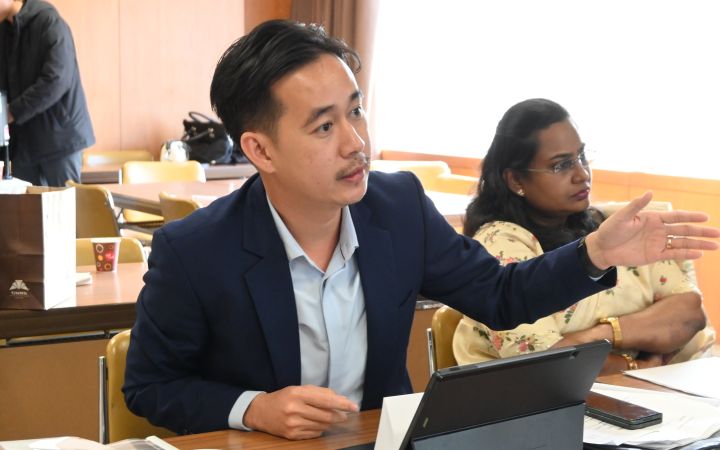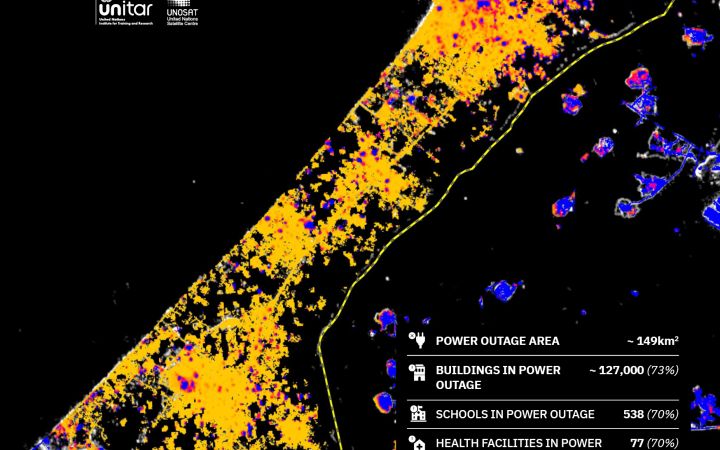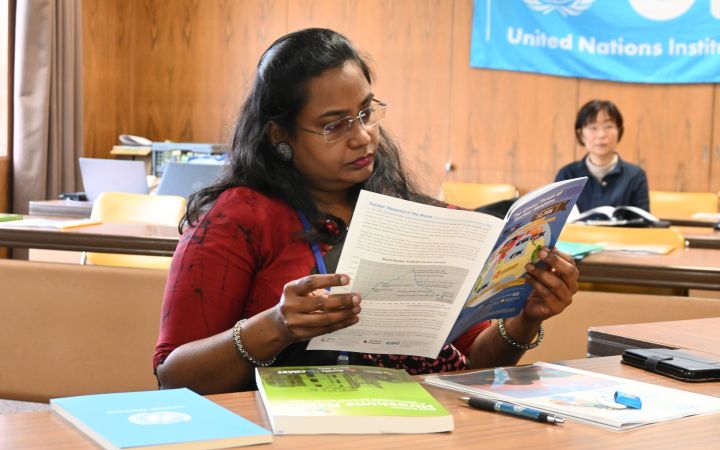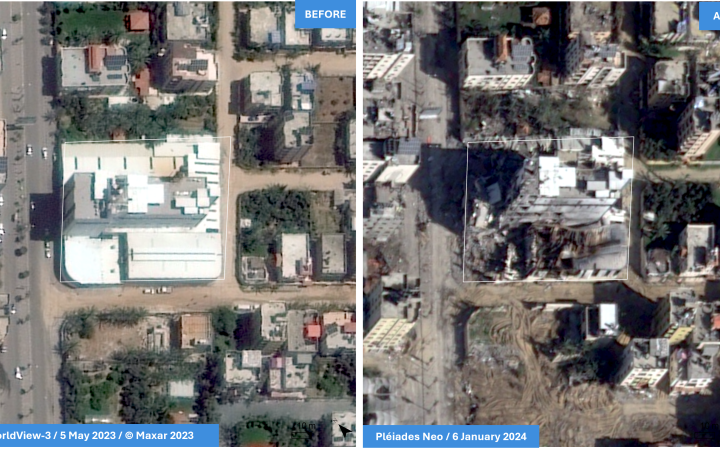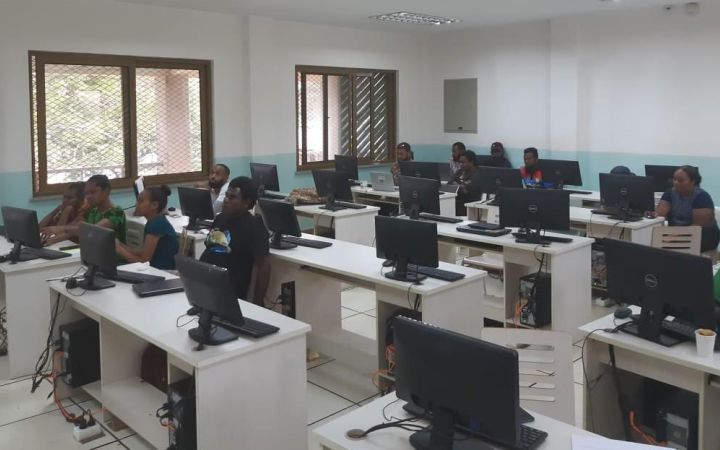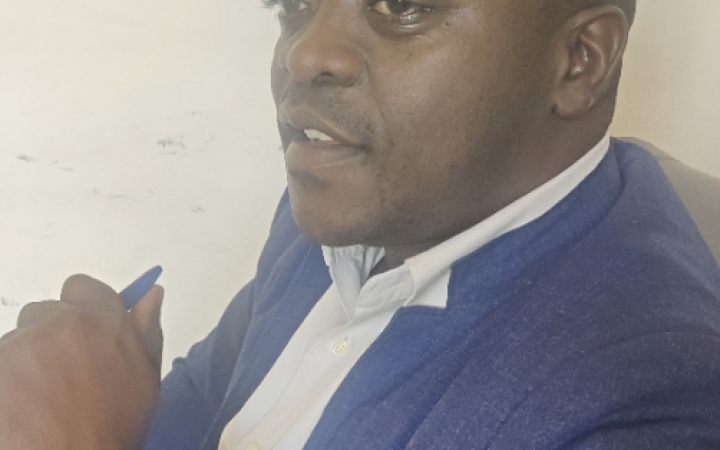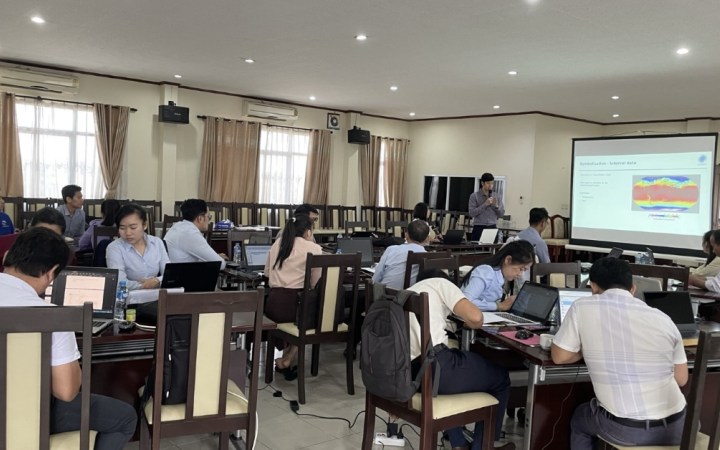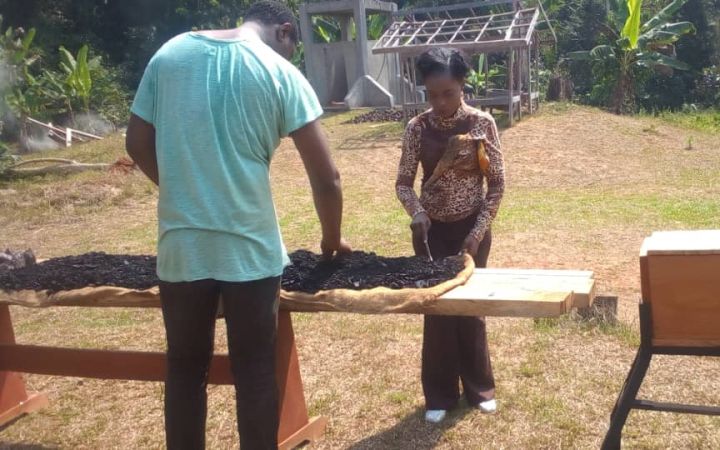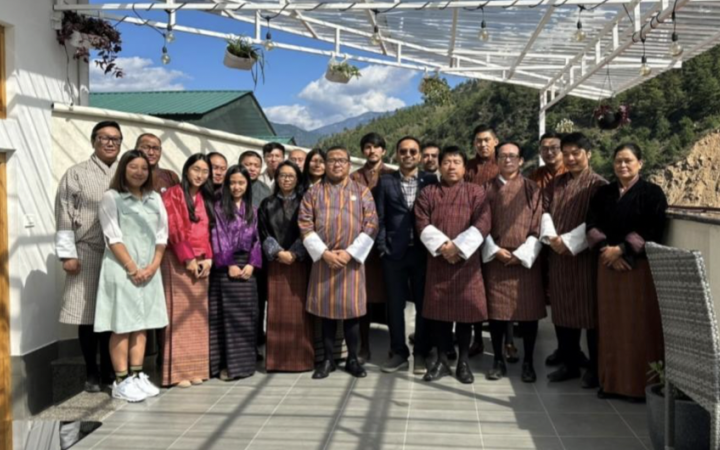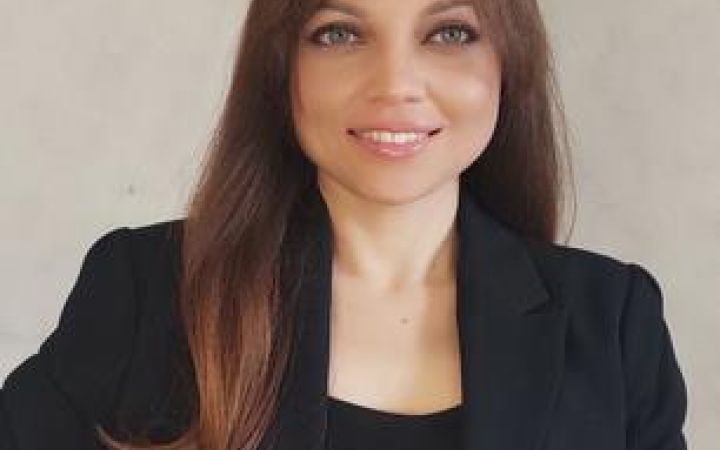Displaying 81 - 90 of 287
16 August 2024, Hiroshima, Japan - The threat of a nuclear world war is far from over, with several countries still holding nuclear weapons in their arsenals. As this generation is accountable to future generations, the role of passionate diplomats negotiating for a nuclear-weapons-free world has become more important than ever. One such diplomat is Soksamnang “Sam” Nov from Cambodia. He is currently a First Secretary to the Permanent Mission of the Kingdom of Cambodia to the United Nations in New York. He engages in work related to the First Committee including the Treaty on the Non-Proliferation of Nuclear Weapons (NPT), the Treaty on the Prohibition of Nuclear Weapons ( etc.. He participated in the 2024 UNITAR Hiroshima Nuclear Disarmament and Non-Proliferation Training to further his skills as a diplomat.
The increase in disaster occurrences and the high numbers of victims resulting from conflicts are urgent issues that require effective and rapid action. Satellite imagery analysis is a vital tool essential in this response, as it can cover large areas and provide accurate information in near real-time.
UNOSAT’s Emergency Mapping Service (EMS), funded by the Norwegian Ministry of Foreign Affairs (NMFA), provides satellite image analysis during humanitarian emergencies related to disasters, complex emergencies and conflict situations. With a 24/7 year-round availability to process requests, the team of experienced analysts ensure timely and tailored delivery of satellite imagery-derived maps (both web and static maps), reports and data ready for direct inclusion in Geographic Information Systems (GIS) for evidence-based decision-making and operational planning.
UNOSAT’s Emergency Mapping Service (EMS), funded by the Norwegian Ministry of Foreign Affairs (NMFA), provides satellite image analysis during humanitarian emergencies related to disasters, complex emergencies and conflict situations. With a 24/7 year-round availability to process requests, the team of experienced analysts ensure timely and tailored delivery of satellite imagery-derived maps (both web and static maps), reports and data ready for direct inclusion in Geographic Information Systems (GIS) for evidence-based decision-making and operational planning.
Prashanthi Krishnamoorthy is the deputy director of the South Asia Division at the Sri Lanka Foreign Service, where she manages bilateral relations with India, Maldives and Pakistan. Prashanthi took part in the FY2023 UNITAR Hiroshima Training Programme on Nuclear Disarmament and Non-Proliferation to enhance her ability to support and advance global disarmament and non-proliferation efforts.
The increase in disaster occurrences and the high numbers of victims resulting from conflicts are urgent issues that require effective and rapid action. Satellite imagery analysis is a vital tool essential in this response, as it can cover large areas and provide accurate information in near real time.
UNOSAT’s Emergency Mapping Service (EMS), funded by the Norwegian Ministry of Foreign Affairs (NMFA), provides satellite image analysis during humanitarian emergencies related to disasters, complex emergencies and conflict situations. With a 24/7 year-round availability to process requests, the team of experienced analysts ensure timely and tailored delivery of satellite imagery derived maps (both web and static maps), reports and data ready for direct inclusion in Geographic Information Systems (GIS) for evidence based decision making and operational planning.
UNOSAT’s Emergency Mapping Service (EMS), funded by the Norwegian Ministry of Foreign Affairs (NMFA), provides satellite image analysis during humanitarian emergencies related to disasters, complex emergencies and conflict situations. With a 24/7 year-round availability to process requests, the team of experienced analysts ensure timely and tailored delivery of satellite imagery derived maps (both web and static maps), reports and data ready for direct inclusion in Geographic Information Systems (GIS) for evidence based decision making and operational planning.
At a time when natural disasters are becoming more numerous and frequent, UNOSAT aims to equip all countries with geographical information systems (GIS) to make informed decisions and reduce the risks associated with these natural disasters. To this end, UNOSAT has set up the project ‘Strengthening Capacities in the Use of Geospatial Information for Improved Resilience in Asia-Pacific and Africa’. The project focuses on developing the capacity to use GIS in government agencies across eight partner countries: Bangladesh, Bhutan, Fiji, Lao PDR, Nigeria, Solomon Islands, Uganda, and Vanuatu.
Captain Stanley Osaba, working at the National Emergency Operations and Coordination Centre under the Department of Relief, Disaster Preparedness and Management in the Office of the Prime Minister in Uganda, experienced a significant professional transformation. This transformation was sparked by his participation in a UNOSAT training course that covered the introduction and advanced GIS training sessions, which is part of the broader "Capacity Building in the Use of Geospatial Information for Improving Resilience in Asia-Pacific and Africa (2021-2024)" project. Initially a passive observer of GIS technology, Captain Osaba became an active participant, capable of developing GIS products and providing sound advice to specialists. "The training empowered me to confidently guide the specialists, offering informed views and recommendations based on my newfound understanding of the technology's capabilities," he explains.
Mrs Khaemeuy Chao is an employee of the technical staff of the Weather Forecasting and Warning Division, Department of Meteorology and Hydrology of the Ministry of Natural Resources and Environment of the Lao People's Democratic Republic. Her role involves disseminating weather forecasts, monitoring and analysing weather conditions for issuing weather forecasts, and severe weather warnings, writing press releases, and compiling monthly summary reports. Recently, Mrs Chao decided to strengthen her capacity in this area by attending training courses organised by UNOSAT as part of the project "Strengthening Capacities in the Use of Geospatial Information for Improved Resilience in Asia-Pacific and Africa (2021-2024)". She has participated in various courses, including "Strengthening Capacities in the Use of Geospatial Information Technology (GIT) for Disaster Risk Management", "Advanced Training on Earth Observation (EO) Applications for Disaster Risk Management" and "Advanced Training on Geospatial Information Technologies for Decision Making in Disaster Risk Reduction".
Vannie Djounguep is reshaping gender equality, entrepreneurship and environmental sustainability in Cameroon and beyond. Vannie is the founder and executive director of an organization that advocates for gender equality and environmental protection, especially in the informal sector. She participated in the UNITAR Advancing Gender Equality and Women Empowerment 2023 Entrepreneurship and Financial Literacy Training Programme, organized in collaboration with the United Nations Development Programme (UNDP) and generously funded by the Government of Canada.
At the heart of Bhutan's evolving landscape, Mr. Chokila emerges as a key figure in driving geospatial developments. In his role as Superintendent Survey Engineer at the National Land Commission Secretariat (NLCS), his collaboration with UNITAR-UNOSAT has been instrumental in this progress. Chokila's quest for professional improvements led him to enrol in UNOSAT's training courses, which are part of the project “Strengthening Capacities in the Use of Geospatial Information for Improved Resilience in Asia-Pacific and Africa (2021-2024)”. He has taken part in various courses, including “UAV Unmanned Aerial Vehicle Data Collection, Processing and Mapping”, “Cloud GIS and Web Application Development” and “Advanced Remote Sensing for Sustainable Land Management”. Through training and implementation of advanced techniques, Chokila's journey exemplifies the tangible outcomes of integrating cutting-edge technology into Bhutan's National Land Commission Secretariat (NLCS).
We know that, globally, women hold over one-third of seats in local decision-making bodies.xxvii However, there is a lack of data on the participation of indigenous women in local decision-making. Merlyn, a research and data analyst at the Learning Planet Institute (University of Paris Cité), knows this issue first-hand. In Colombia, there are around two million indigenous peoples, according to the 2018 Census (IWGIA). However, their inclusion in decision-making processes remains limited, especially for women.


